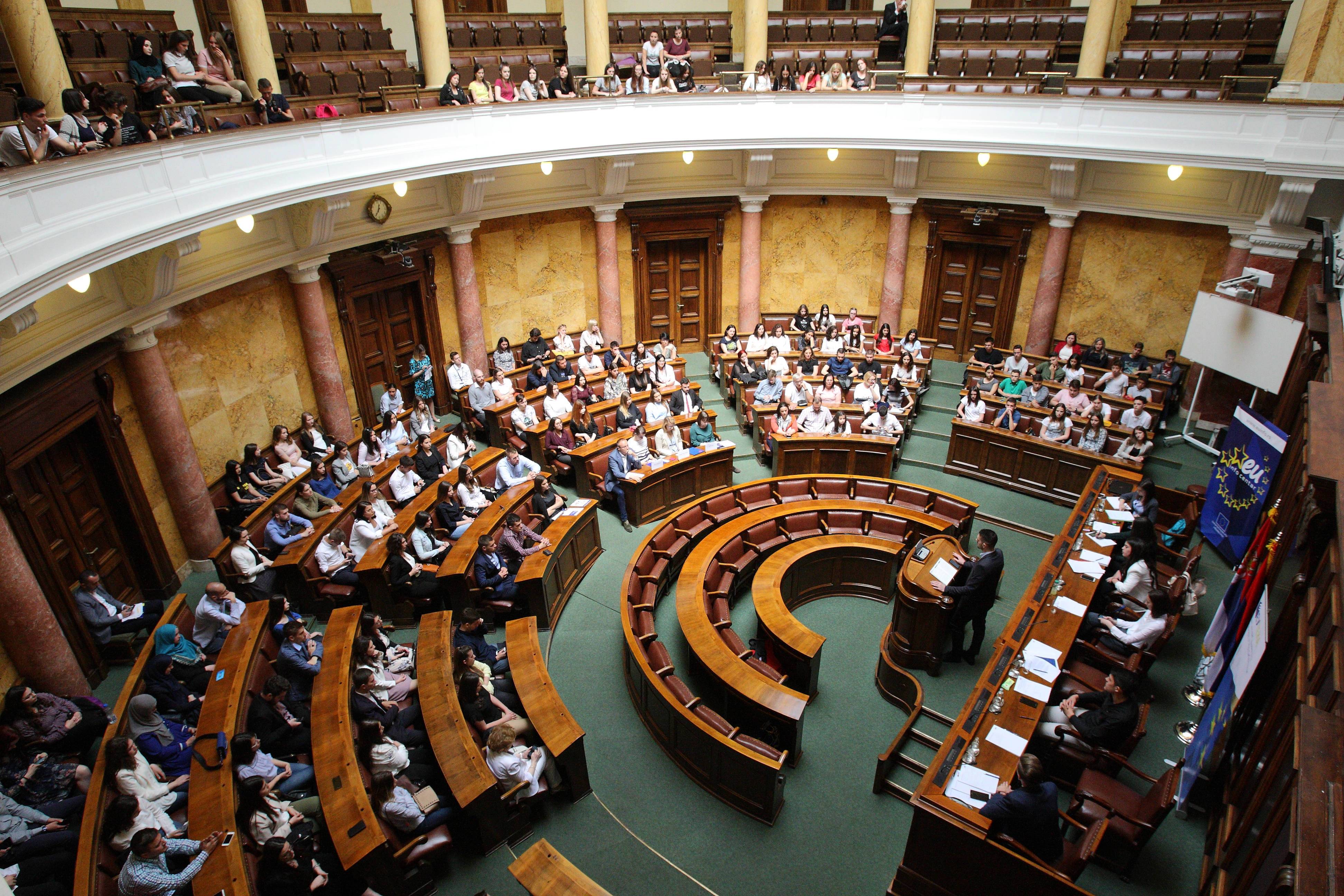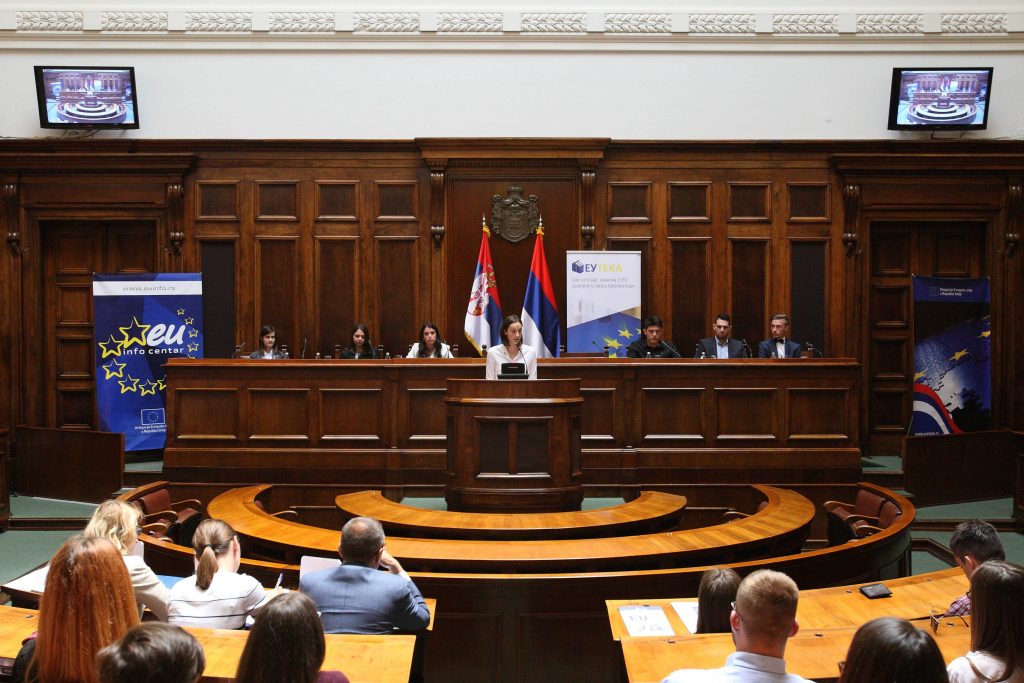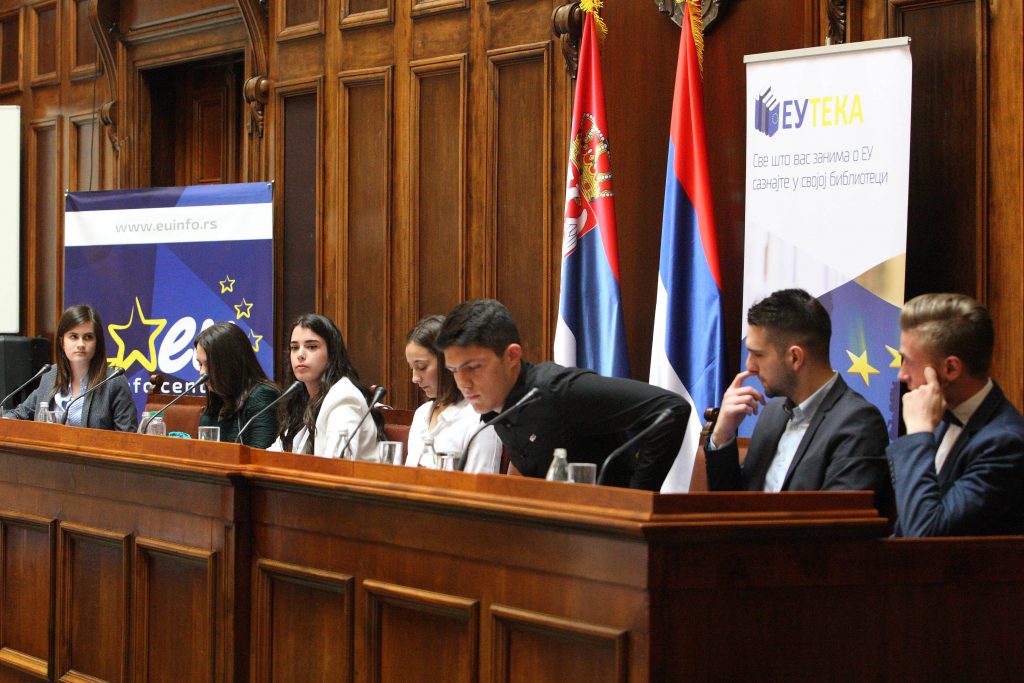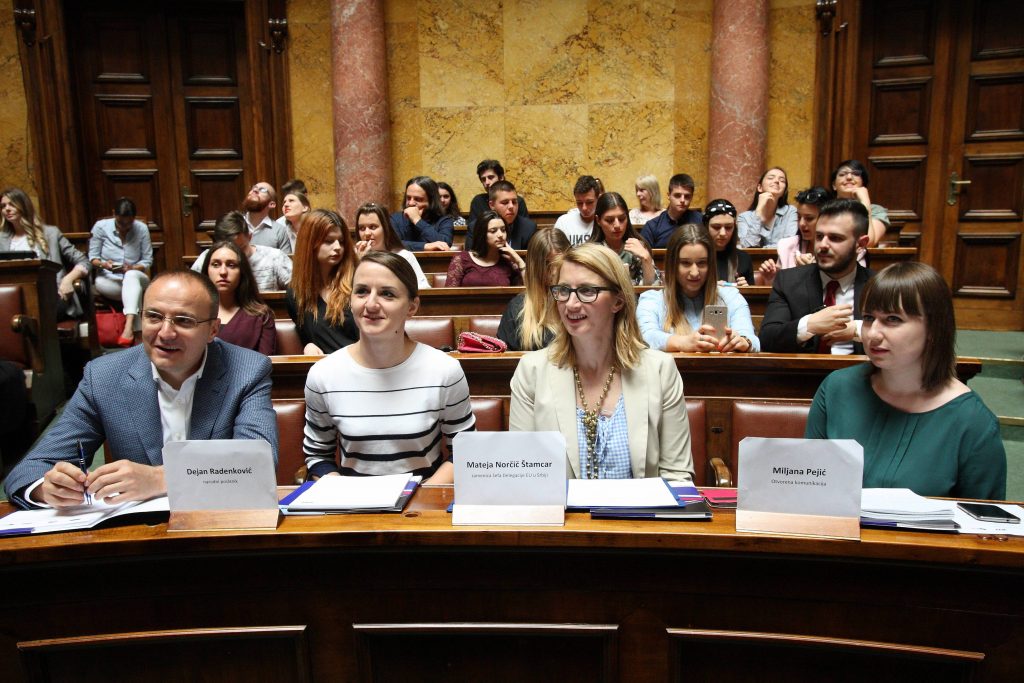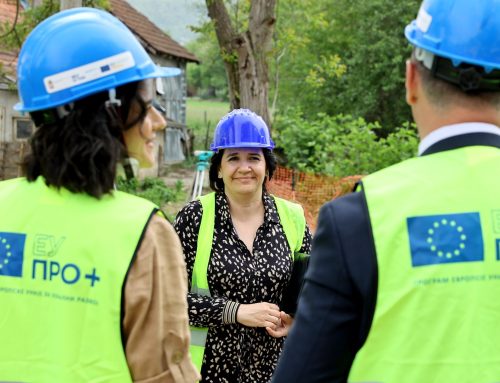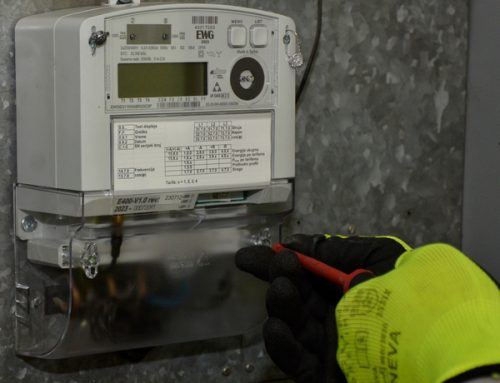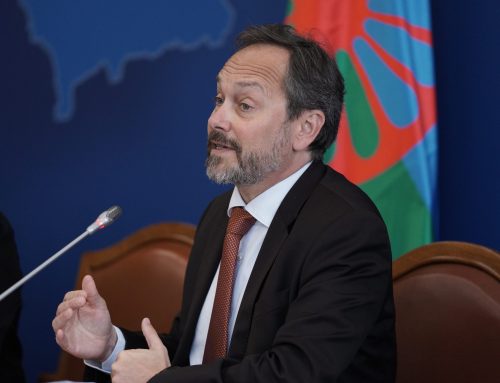It took 40 workshops and seven public debates – in Subotica, Novi Sad, Novi Pazar, Uzice, Nis and Belgrade – before the final showdown within the European Debate School took place at the National Assembly of Serbia.
The topic of the debate: This House proposes EU funding cuts for Member States that undermine the rule of law.
Seven of the most foremost students – out of the initial 150 – took part in the final debate. Zoja Milovancevic from Belgrade gave a keynote address and explained the topic in detail.
The team in favour of the proposal was comprised of Hamza Kolasinac from Novi Pazar, Dejan Djokic from Belgrade and Stefan Strbac from Novi Sad, while the “opposition” team members included Mina Damjanovic from Novi Sad, Andrijana Vitosevic from Kragujevac and Lara Novak from Nis.
The pro team argued that disrespecting the rule of law arouses discontent among citizens. They supported their claim by saying that funding cuts would add to citizens’ discontent, which is necessary in order to bring down a government that advocates anti-European policies. Furthermore, the very existence of EU Member States that undermine EU’s image demotivate candidate countries to follow through with their own rule of law reform.
The other debate team argued that such an approach would not bring about any change in government, as people are inclined to place their trust in local populist leaders rather than in the EU. Possible sanctions, on the other hand, would mainly affect ordinary citizens. EU’s profile would be undermined as people would blame the Union and not the politicians. As a result, the focus would shift from politicians on investors and other countries that are in competition with the EU, and the same politicians would remain in power.
Following the debate, the audience decided the winner, assessing that the “opposition” did a better job. The jury – comprised of Serbian PM and a Member of the European Integration Committee Dejan Radenkovic, Deputy Head of the EU Delegation to Serbia Mateja Norcic Stamcar and Open Communication representative Miljana Pejic – agreed with the audience.
Dejan Radenkovic described new generations as eloquent and said he was happy to listen to debaters. He said that everyone was a winner, stressing, however, that the “opposition” team was more persuasive. “You showed us that there are more sophisticated ways of getting one’s point across.”
Mateja Norcic Stamcar congratulated both teams and described the debate as excellent, giving a good overall status of the EU. Debate skills are something you learn over time and the most important thing in the process is to adopt a sound sense of reasoning. ”I’m giving my vote to the Government due to their ability to present ideas in a more specific manner.”
Miljana Pejic of Open Communication said that “it is not easy to discuss complex EU issues at the age of 16 or 17. I’m giving my vote to the ladies as well because I think they presented us with better arguments.”
The European Debate School took place in five cities, attracting 150 students hailing from 38 towns and cities: Ruma, Becej, Novi Sad, Ruski Krstur, Sombor, Srbobran, Sremska Kamenica, Sremski Karlovci, Petrovaradin, Begej, Subotica, Novi Pazar, Sjenica, Raska, Kragujevac, Kraljevo, Vrnjacka Banja, Smederevska Palanka, Petrovac na Mlavi, Kraljevo, Arilje, Krusevac, Nis, Leskovac, Babusnica, Vranje, Zajecar, Medvedja, Paracin, Bor, Belgrade, Pozarevac, Pancevo, Smederevo, Valjevo, Uzice, Pozega and Negotin.

